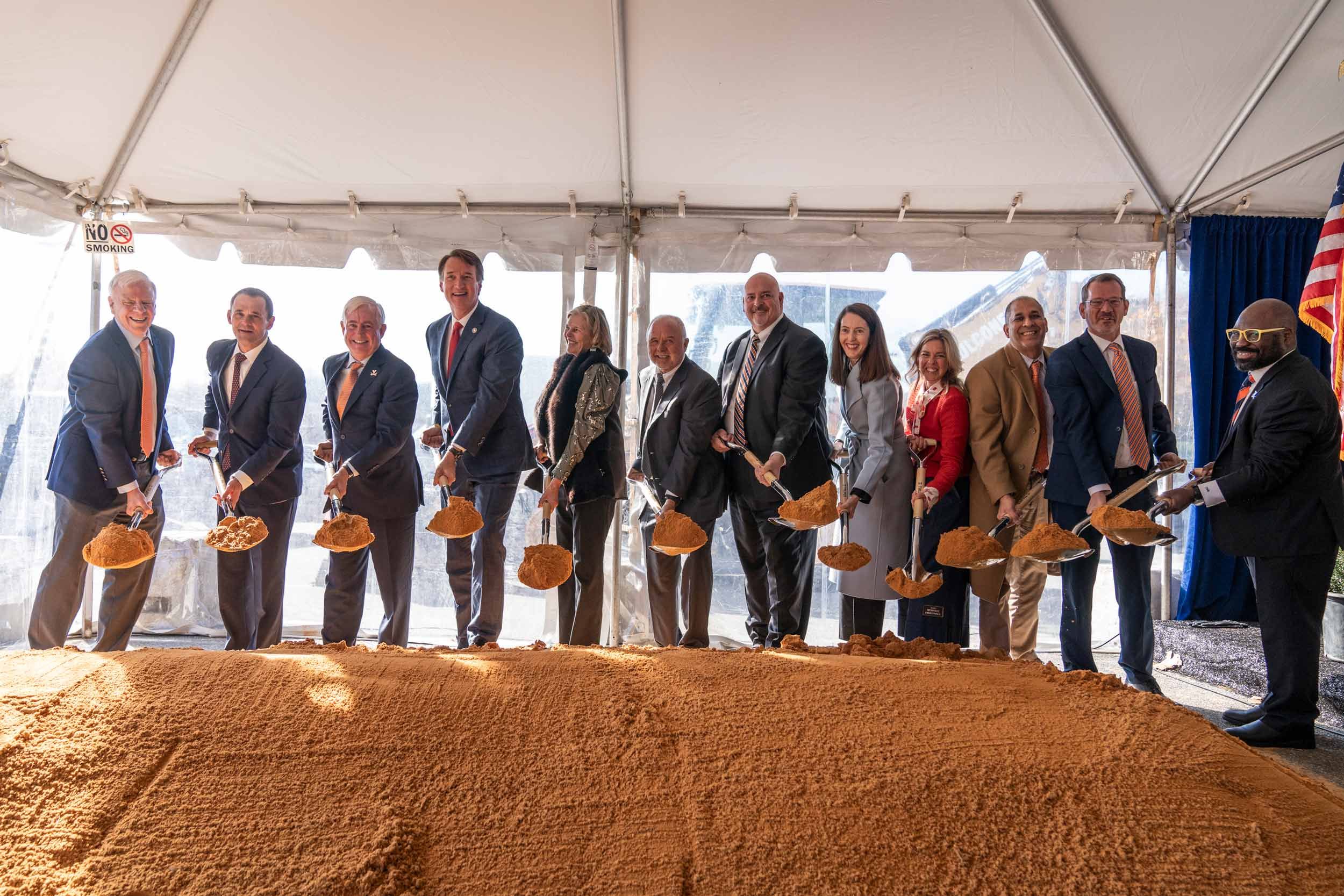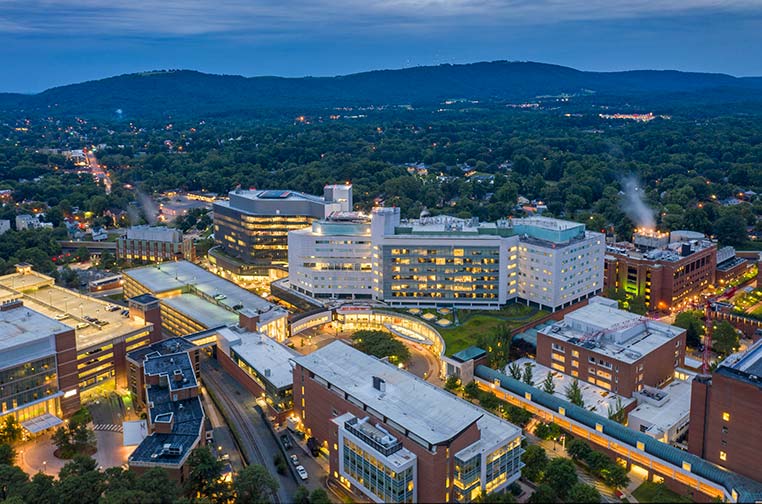UVA Health CEO K. Craig Kent talks about expansion and extension
The leader of the University of Virginia health system talks with Chief Healthcare Executive about the organization’s strategic plan, acquisitions and partnerships, and his contract extension.
On his first day as CEO of UVA Health, K. Craig Kent attended a black-tie fundraiser for the system’s pediatric hospital.
Kent recalls his enthusiasm on his first day.
“I'm in a tux, and meeting hundreds of new people,” Kent says. “And it was so fun. And we're going to have a great journey over the next few years. And these are all the great things that we're going to do for UVA Health.”
However, Kent’s first day at UVA Health was February 1, 2020. Six weeks later, with the arrival of the COVID-19 pandemic, Kent huddled with his leadership team to try and figure out how they were going to manage an unprecedented health crisis.
Needless to say, it wasn’t the beginning Kent had envisioned. But Kent says he quickly formed a strong relationship with his new leadership team, and UVA Health developed ways to be nimble, innovative, and more collaborative across the system.
Four years later, UVA Health has grown substantially under his leadership, and he says he can’t imagine being anywhere else.
“I could not be more lucky to be in this role,” Kent says. “I wake up every day and say, ‘How did this all happen?’ I'm the beneficiary. And every day is a new day.”
In a recent interview with Chief Healthcare Executive®, Kent discusses his contract extension that will keep him with UVA Health for several more years, the system’s strategic plan, its expansion, and the possibility of additional partnerships, including options outside of Virginia.
(See part of our conversation in this video. The story continues below.)
‘Much more to accomplish’
In December, the University of Virginia’s board of visitors voted to extend Kent’s contract as CEO of UVA Health and the university’s executive vice president for health affairs through Jan. 31, 2030. UVA Health includes an academic medical center, three community hospitals, the children’s hospital, a medical school, nursing school, and a physicians group.
Kent says he appreciates the vote of confidence but says it’s a reflection of the work of many others.
“I'm not excited just about me, but our whole leadership team and UVA Health,” Kent says. “It's been a really fun, enjoyable and good journey over the last four years. We've had a lot of success. We've been pretty innovative, through some really challenging times. But whatever success we've had, I almost feel like we're at the beginning. There's so much more to accomplish.”
He points to UVA Health’s strategic plan to expand healthcare access across Virginia.
“Academic health systems, as you know, are a little different than community health systems, in that we provide care to the most complex patients, the tertiary, quaternary patients,” Kent says.
And as a state institution, UVA Health provides care to those with low incomes, and to offer more care to residents across the commonwealth.
“We feel like we want to be able to provide that high-level, tertiary, quaternary care to everyone across the state of Virginia. And we also want to be able to serve people in need across the state of Virginia,” he says.
Officials break ground on UVA Health's new biotechnology institute, which is slated to open in late 2026.

Part of UVA Health’s plans call for a new biotechnology institute. In December, UVA Health broke ground on the Paul & Diane Manning Institute of Biotechnology. Paul Manning, Paul Manning, chair and CEO of PBM Capital, an investment firm, and his wife, Diane, donated $100 million to launch the institute. The total funding amount of the institute, with state aid and UVA Health’s investment, reaches $350 million.
Kent says the 350,000-square-foot facility, which is being built in Fontaine Research Park in Charlottesville, is expected to open in late 2026. He says it will be able to house more than 100 new researchers, and he views the institute as a “game changer.”
“We are so excited about this,” Kent says.
“The whole focus of the biotech Institute … is to attract the kinds of researchers that are in the midst of this translational research, with the idea that ultimately through clinical trials across the state of Virginia, using our hospitals across the state, we'll be able to bring to the people of Virginia, brand new therapies that can save and extend lives.”
Kent says in 10 or 20 years, people will look back and recognize the biotechnology institute was a great investment.
“The beneficiaries are patients or people that will be subject to those Phase One clinical trials, where we're bringing those new therapies to people right here at home in the state of Virginia,” he says.
Virginia Gov. Glenn Youngkin attended the groundbreaking, which also illustrates UVA Health’s strong relationship with the commonwealth’s elected officials.
UVA Health has also seen increased success in securing financing from the state. Virginia lawmakers raised state aid to the UVA Cancer Center from $4 million annually to $20 million.
When asked about the boost in state aid, Kent says, “Success begets success.”
“A lot of our strength is that, of course, we treat routine cancers well, but people that have complex cancers come here for more unusual treatments,” Kent says. “I think we’re well known across the state, and in many areas of research and clinical care, we're known nationally and internationally. So I think the state recognizes that, and feels if we're doing a great job, we could probably do even more with additional resources. And so they've given us additional resources.”
UVA Health has formed a host of partnerships and affiliations with other hospitals on Virginia.

‘Menu’ of mergers and partnerships
Under Kent’s tenure, UVA Health has made some acquisitions and formed new partnerships with other systems.
In 2021, UVA Health took full ownership of three hospitals in northern Virginia in a deal with Novant Health. Novant had jointly operated the hospitals in partnership with UVA Health, but UVA took full ownership of Culpeper Medical Center, Haymarket Medical Center, and Prince William Medical Center.
Kent says the full acquisition of the hospitals “has been a really exciting journey.”
“Over the last two and a half years, we've been maturing our relationship with those hospitals and growing the services in those hospitals. So that's gone really well,” he says.
Last July, UVA Health obtained 5% ownership of Riverside Health System, and has committed more resources to expand healthcare services in eastern Virginia.
"What they needed from us was our high-level tertiary, quaternary care, and we're providing some of that locally through our physicians, and some of those patients are coming here for more complex care," he says.
In addition, UVA Health has developed relationships with several other hospitals.
“So we're kind of everywhere now,” Kent says.
“The way that we've approached these relationships is, if we can provide added value, we're happy to do that,” he continues. “And when you develop a relationship with another health system, or hospital, it's got to be synergistic. It's got to be good for both sides.”
UVA Health has chosen to offer a “menu,” as Kent says, ranging from acquisitions to providing doctors in a certain area. “And that’s been really successful,” he says.
“I think sometimes health systems come in with not a menu, but with just one approach,” Kent says. “And that approach doesn't match everyone. So we've decided to come up with a menu. And if there's a way that we can help and partner, then we're happy to do that in any way possible.”
Kent expects to see more partnerships at some point, and he says mergers, acquisitions or partnerships may not stop at state lines.
“Maybe we'll even consider possibilities outside of the state of Virginia,” Kent says. “So I don't think there's any limitations to what our future might bring.”
Kent says there’s no timetable on any deals or partnerships with hospitals or health systems outside Virginia.
“We've grown so much over the last four years that we don't have a mandate to buy another hospital or develop another relationship in the next three months,” Kent says.
“So for us, it's really more waiting for opportunities to come along, and in putting feelers out and making connections and developing relationships. And if there's something that makes sense and comes along, we don't have a timetable. We're ready to act and move now. If it takes longer for a relationship to develop, we're fine with that.”
Telehealth faces a looming deadline in Washington | Healthy Bottom Line podcast
February 12th 2025Once again, the clock is ticking on waivers for telemedicine and hospital-at-home programs. Kyle Zebley of the American Telemedicine Association talks about the push on Congress and the White House.